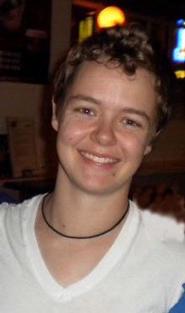
Sitting in a small circle of chairs, six to eight students meet for three hours on a Saturday afternoon. Although the meeting may seem small, its significance expands far beyond its scope; this is the Safe Zone workshop. People often with limited exposures to the gay community attend the workshop to be updated on appropriate vocabulary and learn about their own biases regarding the LGBT community.
As part of a Kirkland grant and with guidance from Professor of History Shoshana Keller, Megan Bolger ’11 is ensuring that this essential form of student-driven education lives on at Hamilton by developing instructor guide books as well as participant packets for future workshops.
Although the Safe Zone workshop is not governed by any central organization or authority, multiple universities around the country offer them every few months. It can be an extremely moving experience, regardless of an individual’s sexual orientation. Most of the sessions that have been conducted at Hamilton have involved members of the Rainbow Alliance with the intention of educating them about current issues and vocabulary within the community, as well as teaching them how to lead a similar session in the future. “It’s really beneficial to everyone, but I think it impacts straight people the most,” Bolger said. She has also led workshops with RAs during the 2009-2010 school year as well as several administrators involved with Hamilton’s Student Life. She hopes to open up the program to the entire campus next year.
The benefit of an “unofficial” program is that the workshop can not only be tailored to different institutions, but to specific groups as well: “RAs, Greek organizations, administrators and sports teams shouldn’t go through the same Safe Zone because they aren’t facing the same issues or addressing the same problems,” Bolger said. “If you’re working with Rainbow (Alliance), you probably won’t spend an hour on vocabulary. But with other groups that may not have much contact with the queer community, you might spend an hour and a half on a few words, and that’s fine.”
But the detriment of this freedom is a lack of protocol, which may result in the dissolution of the workshop over time. Bolger is spending her summer ensuring that this does not happen, creating a packet that will assist potential leaders in deciding what they should include in their workshop. Her packet will include activities that the leader may select from, some of which were her own design and others that were developed by leaders of Safe Zones at other institutions. Bolger believes that each session must touch upon basic vocabulary, scenarios, as well as homophobia and heterosexism, giving examples of how they affect both queer and straight people.
One of Bolger’s favorite activities is something she calls identity time. She has participants write down five aspects of their identities: the person they’re closest to in their families, their closest friends, what they see themselves doing in five years, where they see themselves living, and whether they want to have a family and kids. She then gives each person a queer identity (i.e. gay, bisexual, transgender) and asks everyone to share how having that identity would affect the things on their list.
Bolger is a recipient of a Kirkland Summer Research Associate grant, which is awarded to individuals conducting projects about women’s studies and issues. “You have to have a basic understanding of gender to understand some of the biases we have about sexuality,” Bolger said. “Many of aspects sexism are tied to social expectations of women, not their biology, so it’s important that people have a basic understanding of gender…The workshop also highlights the detrimental effects of heterosexism (a prejudiced attitude or discriminatory practices against homosexuals by heterosexuals). How it affects everyone, men and women, the way it confines what is considered an acceptable gender presentation or identity.”
Bolger is a graduate of South Burlington High School in Vermont.
Posted July 15, 2010
